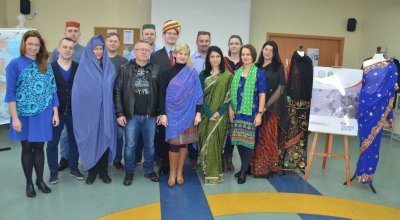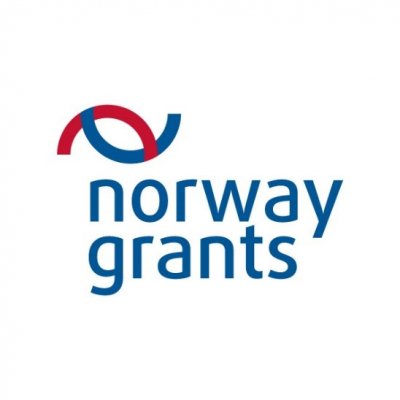For four days the participants – border guards from various BG Regional Units, as well as employees of Pomeranian Government Office and the Office for Foreigners – acquired knowledge related to selected countries of Indian Subcontinent – Pakistan, India, Nepal, Bangladesh and Sri Lanka.
The course started with the lectures conducted by the expert invited for the event – PhD. Agnieszka Kuczkiewicz – Fraś – the lecturer of Near and Far East Institute of Jagiellonian University, on historical, geopolitical, religious and cultural aspects of the region.
One of the most interesting parts of these lectures was the information on the basics of the religions and philosophical systems present in the region – the participants were familiarised with Hinduism and its main cults – Vaishnavism, Shivaism, Shaktism and Ganesha, Jainism, Buddhism, Sikhism, as well as the basics of Islam, a dominating religion in Bangladesh and Pakistan.
Another fascinating topic was related to the rules and ethics of behaviour resulting from culture, the role of family in daily life and the social position of women and children, with special consideration of India.
The participants of the course had also the possibility to familiarise with various elements of clothing from the region, some even had the possibility to put them on.
The next day of the course, carried out by BG senior warrant officer Jarosław Nahorski, focused on topics related to historical background and current situation on conflicts, separatist movements and terrorist threats present in the region. The lecturer discussed the conflict between India and Pakistan in Kashmir, separatism movements in Punjab and Assam (India), Sri Lanka, as well as Pakistani ones in Waziristan, Balochistan and Sindh. He also relayed information on Hindutva or “saffron terror” and various terrorist organisations active in South Asia.
The last part of this day was devoted to a workshop on improving intercultural skills, during which the participants had the opportunity to take active part in team rivalry while presenting the knowledge obtained in the previous parts of the course.
Another lecture on migration issues of the inhabitants of South Asia was carried out by BG Lieutenant Colonel Agata Chmura Segedyn. In the presentation she described the migration history both inside the Subcontinent and outside it, as well as push factors in South Asia (using Bangladesh as the model).
BG Lt Col A. Chmura Segedyn specified also the migration process from South Asia to neighbouring countries (Thailand, Malesia, Indonesia, Australia) and remote areas such as USA, Canada, Persian Gulf countries, and Europe – with the Great Britain as the main European country of destination for the inhabitants of South Asia.
An interesting comparison was also made between the Poles living in London, and the Indian/Pakistani nationals.
In the next part of the course the lecturer focused on the issue of migration of foreigners from Indian Subcontinent to Poland – the history and situation. This part was supported by statistical data on (legal and illegal) border crossings, stay permits, illegal stay or employment, as well as granting the international protection to migrants from South Asia in recent years.
The last part of the training course was devoted to a travelling diary presented by another BG officer from Foreigners’ Affairs Department – BG Second Lieutenant Maciej Wilgan, who shared his experience on the region obtained during his numerous voyages, presenting pictures from his travels.
This presentation was accompanied by the sound of Indian music, smell of incense, presentation of clothing, publications and films from the region which influenced the positive image of the course.
The training was co-financed in the frames of Norwegian Financial Mechanism (Project No. 26/NMF PL 15/14 ‘Enhancing competence and qualifications of public administration within the scope of migration and asylum with special attention paid to preventing irregular migration’).
News
Advanced course „Socio-cultural aspects of communication with foreigners from selected countries of Indian Subcontinent”
Marcin Zieliński
15.11.2016

